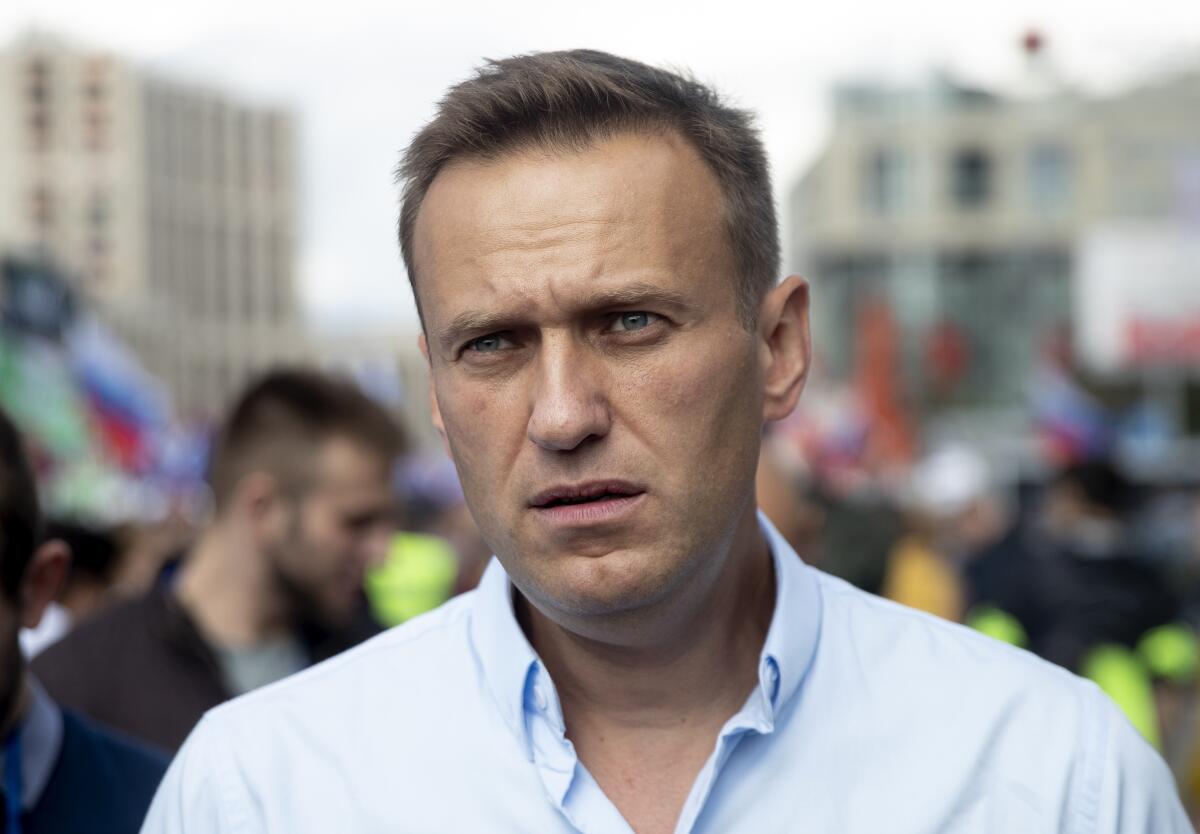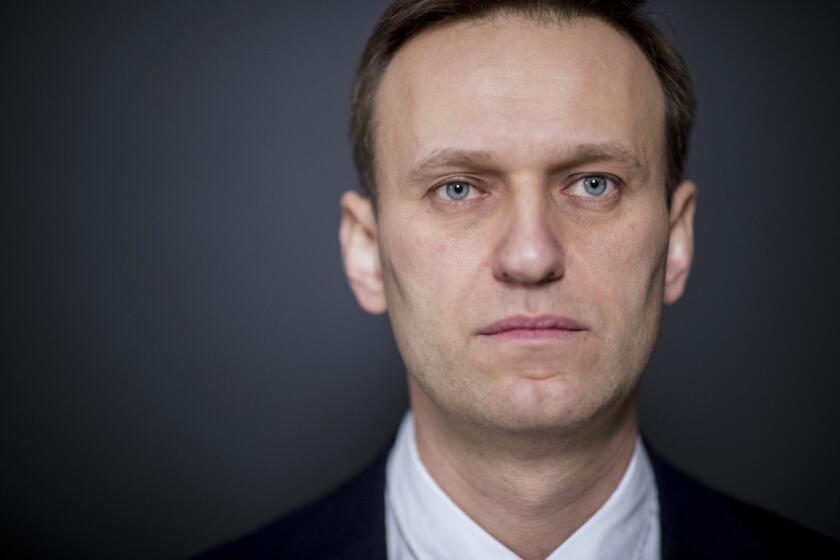Soviet-era nerve agent Novichok found in Alexei Navalny’s system, Germany says

- Share via
BERLIN — The German government says tests performed on samples taken from Russian opposition politician Alexei Navalny showed the presence of the Soviet-era nerve agent Novichok.
Navalny, a politician and corruption investigator who is one of Russian President Vladimir Putin’s most vocal critics, fell ill on a flight to Moscow from Siberia on Aug. 20 and was taken to a hospital in the Siberian city of Omsk after the plane made an emergency landing.
He was later transferred to Berlin’s Charite hospital, where doctors last week said there were indications that he had been poisoned.
Chancellor Angela Merkel’s spokesman, Steffen Seibert, said in a statement Wednesday that testing by a special German military laboratory had shown “proof without doubt of a chemical nerve agent from the Novichok group.”
Novichok, a Soviet-era nerve agent, was used to poison former Russian spy Sergei Skripal and his daughter in Britain in 2018. It is a cholinesterase inhibitor, part of the class of toxic substances that doctors at the Charite initially identified in Navalny.
“It is a dismaying event that Alexei Navalny was the victim of an attack with a chemical nerve agent in Russia,” Seibert said. “The German government condemns this attack in the strongest terms.”
The attack on Alexei Navalny — at least the sixth such attempt against a Russian dissident in the last five years — has provoked international condemnation on a scale not seen since the poisoning of former double agent Sergei Skripal.
Seibert said Germany would inform its partners in the European Union and NATO about the test results and consult with them “on an appropriate joint response.”
Navalny’s allies in Russia have insisted he was deliberately poisoned by the country’s authorities, accusations that the Kremlin rejected as “empty noise.”
“To poison Navalny with Novichok in 2020 would be exactly the same as leaving an autograph at a crime scene, like this one,” Leonid Volkov, Navalny’s longtime ally and strategist, said in a tweet that featured a photo of Putin’s name and a signature next to it.
The Russian doctors who treated Navalny in Siberia have repeatedly contested the German hospital’s conclusion, saying that they had ruled out poisoning as a diagnosis and that their tests for poisonous substances came back negative.
News Alerts
Get breaking news, investigations, analysis and more signature journalism from the Los Angeles Times in your inbox.
You may occasionally receive promotional content from the Los Angeles Times.
The Charite in Berlin said Navalny was still in an induced coma but in stable condition.
Novichok is a class of military-grade nerve agents developed by the Soviet Union at the end of the Cold War. Western weapons experts say it has only been manufactured in Russia. After the Skripals were poisoned, Russia said the U.S., Britain and other Western countries acquired the expertise to make the nerve agent after the Soviet Union collapsed, and that the Novichok used in the attack could have come from them.
Britain has charged two Russians — alleged to be agents of the Russian military intelligence service GRU — in absentia with the 2018 attack, which left the Skripals in critical condition and killed a local woman. Russia has refused to extradite the men to Britain.
British police believe the nerve agent was smuggled to Britain in a counterfeit Nina Ricci perfume bottle and sprayed on the front door of Sergei Skripal’s house in the city of Salisbury in southwest England.
More than three months later, the bottle was found by a local man, 48-year-old Charlie Rowley. He was hospitalized, and his girlfriend, Dawn Sturgess, 44, died after being exposed to the contents.
More to Read
Sign up for Essential California
The most important California stories and recommendations in your inbox every morning.
You may occasionally receive promotional content from the Los Angeles Times.











